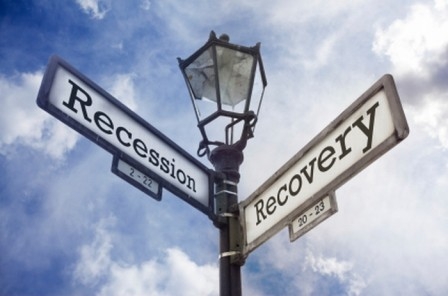 I’m just going to come out and say it, ok? I miss the Great Recession already.
I’m just going to come out and say it, ok? I miss the Great Recession already.
I miss it for two reasons: first as an investor and second as a human.
The Investment Side of the Great Recession
As an investor, the Great Recession represented the good times, now past.[1]
Recessions – or at least their financial unfolding via changes in asset prices – cause not only wealth destruction, but also wealth creation. For investors[2] in particular, a recession is often necessary in order to deploy capital at attractive prices.
Warren Buffett famously gets irritated about the lack of investment opportunities in his annual Berkshire Hathaway letters during boom times, like his 1999 letter[3] and 2007 letter,[4] because prices of public securities outpace intrinsic value. Conversely, he gets very busy and active buying companies when prices drop and other investors flee. Recessions for Buffett, as well as for many investors, represent the best time to accumulate wealth. Which is why he famously says:
“Be fearful when others are greedy, and be greedy when others are fearful.”
Another famous value investor, Shelby Collum Davis,[5] said more pointedly:
“You make most of your money in a bear market. You just don’t know it at the time.”
If you believe Buffett and Davis, as I do, then you too will think wistfully of the Great Recession because, as an investor, the good times are in the past. Now, with US equity indexes up over 100% from their March 2009 lows, investing consists of purchasing expensive assets and hoping they get more expensive. Which has a lot more to do with gambling than it does with investing.
The Human Side of the Great Recession
Of course this may sound awfully callous from a human perspective, and I don’t mean to diminish the real human suffering of the Great Recession. In fact, on the contrary, it’s the humanity that emerged during the Great Recession that I want to call attention to, as the part I’m going to miss the most.
Remember when your 401K lost 5% of its value every month – month after month after month – between August 2008 and March 2009? Remember that you just stopped regularly checking its value – or any part of your supposed net worth – by about December 2008, because the whole thing just became too painful to contemplate?
At that moment, falling into the Great Recession, we all confronted, in our own way, the painful reality that our human worth had to be something other than our financial net worth. Because otherwise we just became half of who we were.
Remember when in the space of just a few short months either you – or someone you knew well – lost a job, a house, or a business?
As awful as that was, our collective acknowledgement of suffering changed the way we acted on a daily basis. For people relatively well off, the new austerity forced a kind of back-to-basics approach to living. Luxury consumption plummeted, and staycations soared in popularity, if only out of solidarity with those who suffered even more.
I personally lost money in the Great Recession. But what turns out to be even more painful, as a fiduciary, is losing other people’s money. I dreaded calling investors on the phone to report a loss, and I dreaded, worse yet, seeing them in person. To make it more painful for me, my investors, unfortunately, were often my friends and family. The thought of it kept me awake and tossing in bed in the 1-3am hours. For a couple of years. Not good times.
Would you like to know what reduced me tears, however? It was the investors who told me it was going to be ok, that they still believed in me, and that the lost money didn’t mean they valued me less as a person. Even as I write this now, it gets a little dusty in the room when I think of that.
There’s a human element that only reveals itself in the bad times.
Laissez Les Bons Temps Rouler
My sense is that sometime between Groundhog Day and Mardi Gras 2013, the Financial Infotainment Industrial Complex will peak out at the nation’s Great Recession shadow, and officially declare the long Winter finally over.
That declaration will signal it’s time for luxury living again and real vacations. Masters of the Universe will know they can safely begin to channel their inner Patrick Bateman in public again.
In that smooth shift from Recovery to laissez les bons temps rouler I’m certain we’ll go back to checking our net worths in the mirror more often, and possibly our human worths less often.
But I hope we’ll hold on to the memory of what we had, and lost, and recovered, during the Great Recession.
[1] I acknowledge I’m being colloquial, not academic, about what I mean by a recession generally or the Great Recession in particular. I don’t mean an economist’s definition of recession, which would refer to changes in GDP. I also don’t mean to quibble about an US equity ‘bear market,’ as it’s been a few years since that occurred. What I really mean is a holistic sense that, with unemployment below 8% nationally and the general level of stocks approaching their 2007 highs, the national mood has swung away from Recession and toward Recovery and I’m confident soon enough we’ll be in Boom Times.
[2] By “investor” I mean as distinct from “gambler,” which is what most of us do when we purchase public securities.
[3] Which I’ve helpfully linked to here, and would call your attention in particular to page 16, in which he anticipates the bursting of the tech bubble and the bursting of the equity bull market in general.
[4] Which is linked to here, and I’d call your attention to pages 18-20 in which Buffett tries to lower expectations for equity returns going forward.
[5] Whose son and grandsons run this firm, Davis Advisors.
Post read (15708) times.






7 Replies to “I Miss The Great Recession Already”
I’ve gotten some dagger eyes when I’ve said stuff like this out loud. Our area got hit so ridiculously hard, but the deals are gone. Our investment duplex doubled in value in two years. And instead of being happy about that, it ticks me off because I wanted to buy more of them but we only had so much capital to work with at the time.
Yup. It’s counter-intuitive for most people, but investing consists of buying when prices are low, which typically occurs during a period of recession or distress. Investor Shelby Collum Davis’ maxim is not as well known as it should be.
You might also want to kick in Daniel Drew’s comment, “there’s good fishing in troubled waters.” Frankly, I’m not seeing any return to prosperity since the market’s divorced from meaningful reality. When I know families in Brady Bunch-style neighborhoods raising chickens to supplement their diet and cut their budget, then the whole “it’s all better” meme is so much hot air.
I miss it too.
I came out of college too late to accumulate enough wealth to invest.
This is both fortunately/unfortunately because one) I didn’t have capital to invest 2) I was shielded from the recession because I was still in school.
You gotta do what you gotta do though. We are planning to buy a house at the end of this year and we are investing in the stock market.
Glad to have your comment. I checked out your blog. Best of luck on this financial journey!
What he said